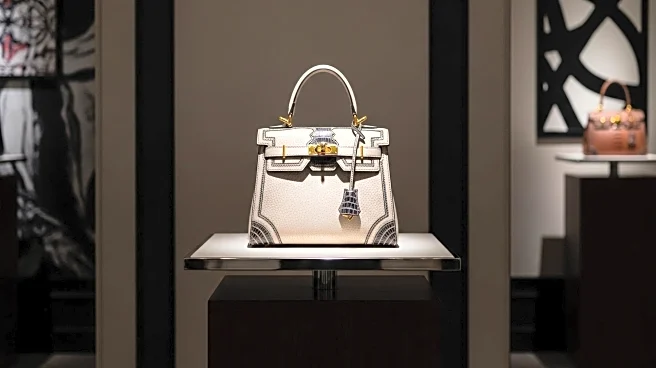What is the story about?
What's Happening?
The European Union Commission has imposed a fine of €157 million ($181.52 million) on luxury fashion brands Gucci, Chloé, and Loewe for engaging in anticompetitive pricing practices. These brands were found to have fixed resale prices, which is a violation of EU competition rules. The Commission highlighted that such practices lead to increased prices and reduced choices for consumers. Gucci, owned by Kering, resolved the EU probe through a cooperation procedure, and the financial impact was accounted for in Kering's 2025 first-half results. The investigation revealed that these companies interfered with their retailers' commercial strategies by imposing restrictions, such as not allowing deviation from recommended retail prices, setting maximum discount rates, and specifying sales periods.
Why It's Important?
This development is significant as it underscores the EU's commitment to maintaining fair competition within the market, ensuring that consumers have access to a variety of choices at competitive prices. The fine serves as a warning to other companies that might engage in similar practices, emphasizing the importance of compliance with competition laws. For the U.S. market, this action could influence American companies operating in Europe to reassess their pricing strategies to avoid similar penalties. Additionally, it highlights the ongoing scrutiny of ethical and social responsibility statements by companies, which could lead to increased regulatory oversight in the U.S. as well.
What's Next?
Following the resolution of the EU probe, Gucci and its parent company Kering may need to adjust their pricing strategies and retailer agreements to comply with competition laws. Other luxury brands might also review their practices to ensure compliance and avoid potential fines. The EU's action could prompt further investigations into other sectors where similar anticompetitive practices might exist. Retailers affected by these practices may seek compensation or renegotiate terms with these brands.
Beyond the Headlines
The case also raises questions about the ethical and social responsibility of luxury brands, as misleading statements about working conditions were noted by Italy's antitrust regulator. This could lead to increased scrutiny and demand for transparency in supply chain practices, potentially affecting brand reputation and consumer trust.















